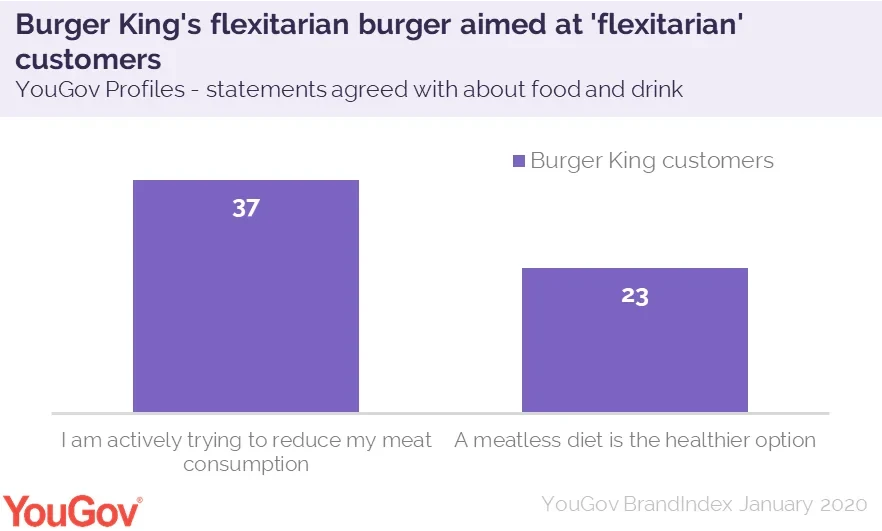Veganism has grown in popularity over the past year, leading to many products like Greggs’ vegan sausage roll and KFC’s vegan burger which I’ve looked at in this column previously.
YouGov data shows that while only 1% of the UK describes their eating habits as vegan (not consuming any dairy products, eggs, or other animal products) a further 5% are likely to take the plunge in the next year.
In celebration of the popular ‘Veganuary’ craze this month, even more brands have created vegan offerings. Greggs has added a vegan steak bake to its range and Pizza Hut has created a ‘pepperphoni’ pizza. Supermarket chain The Co-operative has also launched a new range of vegan food named ‘Gro’ featuring 35 meat-free products.
Those who consider the Co-op their main supermarket are more likely to be vegan and vegetarian than the national average (3% vegan, versus 1% of the country as a whole, and 6% vegetarian, versus 4% of the country). This suggests Co-op’s new range will strongly appeal to those current customers, rather than enticing new ones - 95% of those who consider Co-op their main supermarket say they are unlikely to become fully vegan in the next 12 months, slightly higher than the 92% national average.
Veganism isn’t the only dietary trend for the New Year – reducing meat intake, particularly red meat, and generally following a more ‘flexitarian’ diet, is another tendency that brands are counting on. Burger King has created a plant-based version of the famous Whopper aimed specifically at those who want to eat less meat; it’s cooked on the same grill as beef burgers and contains dairy fillings, so strict vegans will pass it by.
Only January’s sales figures will tell if Burger King’s flexitarian approach is successful. However, YouGov data shows that more than a third of its customers (37%) are actively trying to reduce their meat consumption, and a fifth believe that a meatless diet is the healthier option (23%), suggesting the appetite is certainly there.

This article previously appeared in City A.M.












